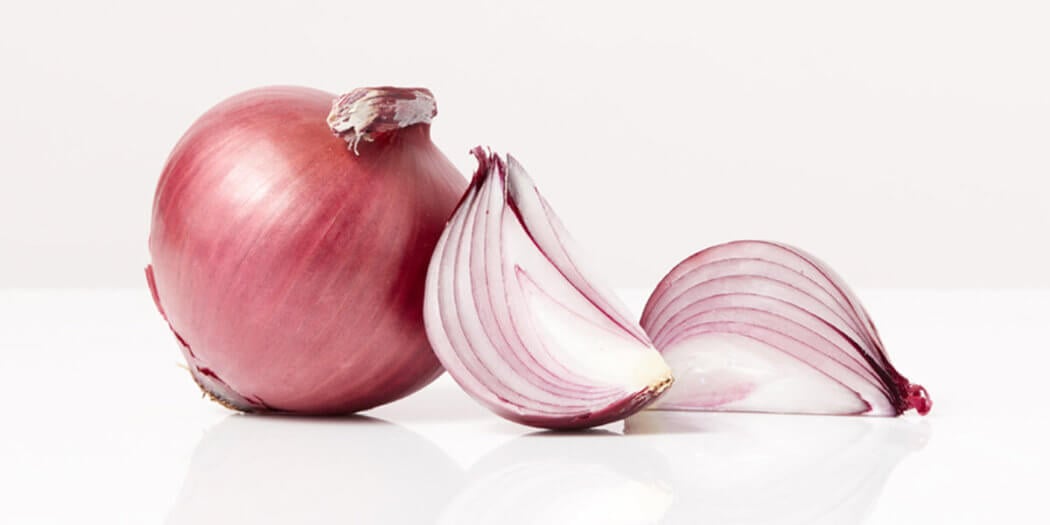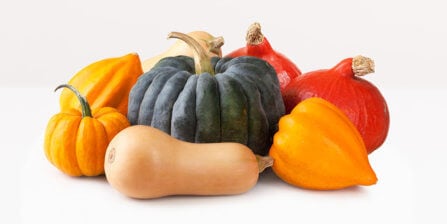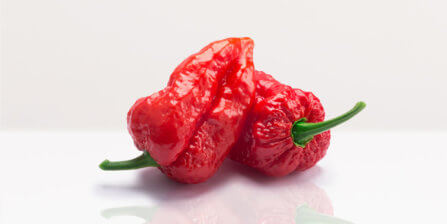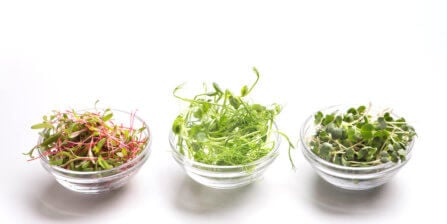Grocery Guides
Red Onions – All You Need to Know | Instacart Guide to Fresh Produce

What are red onions?
Red onions are round vegetables that are related to yellow, white, and sweet onions. They have reddish-purple skin that covers the onion. The outermost part of each layer is red, while the rest of the flesh is white.
They are most often eaten fresh in sandwiches, soups, salads, and hamburgers. They are just as delicious cooked in stir-frys, soups, and casseroles. Cooking them gives them a milder flavor while eating them fresh offers tang and crunch.
Where did red onions originate from?
It’s believed that onions have been cultivated for more than 5,000 years, with evidence of their existence in central Asia. History shows that red onions were originally grown in Romania, Italy, and the United States.
The red onions from Turda, Romania, are slightly sweet and a common ingredient in local cuisine and used as a garnish.
In Tropea, Italy, the red onions have a stronger flavor but are juicier and also sweet. The sweetness and high water content make them perfect for making savory jams.
In the U.S., Wethersfield, Connecticut was a primary source of red onions for the New England area through the 19th century.
What is the nutritional value of red onions?
Being mostly composed of water, red onions are very low in calories and fat. They have significant amounts of vitamin C, vitamin B-6, and manganese. They also have trace amounts of calcium, iron, magnesium, phosphorous, and folate.
One cup of onion gives you:
- 64 calories
- 14.0g carbohydrate
- 0.16g fat
- 0 g cholesterol
- 2.7g fiber
- 1.7g protein
- 6.8g sugar
How are red onions grown?
Red onions are a root vegetable and are easy to grow in home gardens because they don’t require much effort. You can start onions from seeds, already started onion bulbs, or take a DIY approach and use the root ends of onions you have at hand to plant them one at a time as you’re ready to regrow an onion.
Onions need to be in fertile soil that has good drainage. Since onions are mostly water, they consume a lot of it, and it’s essential to water them frequently. They need full sunlight for optimal growth.
You can typically harvest onions 3 to 4 months after planting. When the tops start to fall over, it’s time to dig them out of the ground.
When are red onions in season?
Red onions are generally harvested between July and October, but thanks to modern farming and shipping, they can be grown year-round in warm climates and transported to a grocer near you no matter what time of year it is.
What should I look for when buying red onions?
Onions can be tricky to choose because sometimes they look great on the outside, but the inside is rotten. As you choose red onions, look for dry ones with no scent. They should feel heavy for their size, be firm, and have no bruises.
If you are looking to have your groceries delivered, you can easily shop for red onions via Instacart. After adding a product to your cart, use the “Instructions” option to notify your Instacart shopper about any preferences or specific directions on how to choose the best products. Shop for red onions.
How to store red onions
Whole red onions can be kept for months when stored properly. Did you buy a 10-lb bag only to discover that it’s way too much? Keep them in a mesh bag in a cool, dry, dark, and well-ventilated area. Basements, cellars, closets, and pantries are optimal storage places for whole onions.
Once the onion is peeled, it needs to be refrigerated. Well wrapped, it can keep for 1 to 2 weeks.
If you only need a small amount of red onion, you can put the remainder in an air-tight container and store it in the fridge for up to 7 days.
Chopped onions can be frozen in a ziplock bag, but be warned that they will be soft and mushy when thawed due to their high water content. Frozen onions are great for soups, stews, and casseroles, or any other recipe in which they’ll be cooked. Freezing is a convenient way to prevent waste when you have recipes that call for 1/2 or 1/4 of an onion.
How to tell if red onions are bad
Mushy spots, slime, and mold are sure signs that onions have gone bad. Bad red onions will also have a sweet smell that might be offputting. Sprouts on an onion are a sign that it will soon turn bad. It’s still safe to eat as long as there are no other signs of spoilage.
What can I substitute for red onions?
Red onions are versatile, meaning you won’t sacrifice texture or flavor when you sub a different type of onion for another in recipes. When red onions aren’t available, you can use:
- White onions
- Sweet onions
- Yellow onions
- Shallots
- Leeks
For dishes that call for uncooked red onions, shallots are a better option as they have a mild flavor and aren’t overly strong. In recipes that call for cooking the onions, any of these are a suitable substitute.
Add red onions to your next meal
Not only are red onions good for you, but they’re also a great addition to many recipes. Full of flavor and health benefits but low in calories, they’re a guilt-free addition to your next meal. Whether you’re making salsa for Tuesday taco night or want to try to pickle red onions for a tangy, crisp salad topping, you can purchase red onions online and get same-day delivery with Instacart. Or to get them faster, choose in-store pick-up, and your groceries will be ready in 2 hours or less.
Most Recent in Grocery Guides

Grocery Guides
Guide to Sustainable Grocery Delivery
Who has time for the grocery store these days? Between work, family and everything else, it feels like a chore we could all do without. That's where sustainable grocery delivery comes in! You get the…
Feb 7, 2025
Grocery Guides
19 Best Milk Substitutes for Baking and Cooking
Milk’s rich texture and neutral flavor make it a staple in countless recipes, bringing creaminess and balance to sweet and savory dishes alike. But what happens if you run out of milk or need a…
Jan 30, 2025
Grocery Guides
15 Best Cheeses for Your Next Charcuterie Board
Let’s face it: The heyday of the store-bought party platter is long gone. Now, the duties of a good host often include curating an impressive charcuterie board. But where do you begin? Charcuterie boards typically…
Jan 21, 2025

 Squash – All You Need to Know | Instacart Guide to Fresh Produce
Squash – All You Need to Know | Instacart Guide to Fresh Produce  Ghost Pepper – All You Need to Know | Instacart Guide to Fresh Produce
Ghost Pepper – All You Need to Know | Instacart Guide to Fresh Produce  Sprouts – All You Need to Know | Instacart Guide to Fresh Produce
Sprouts – All You Need to Know | Instacart Guide to Fresh Produce 

